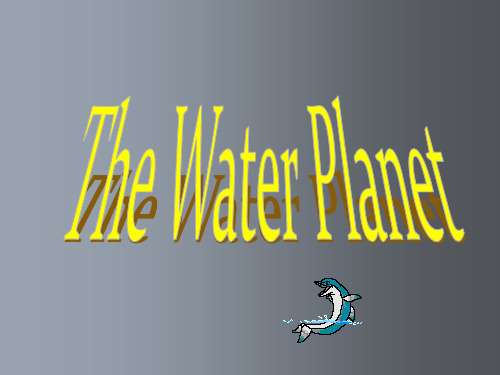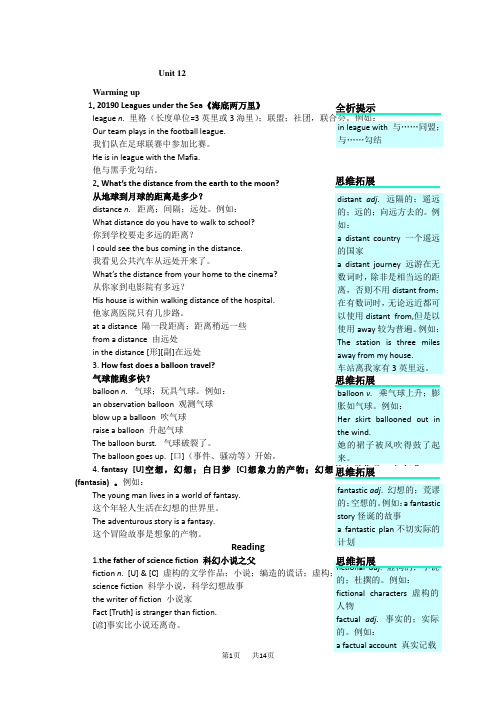高二英语下学期unit12-words
- 格式:pdf
- 大小:1.91 MB
- 文档页数:10





第1页 共14页Unit 12Warming up1.20190 Leagues under the Sea 《海底两万里》 league n . 里格(长度单位=3英里或3海里);联盟;社团,联合会。
例如:Our team plays in the football league. 我们队在足球联赛中参加比赛。
He is in league with the Mafia .他与黑手党勾结。
2.What ’s the distance from the earth to the moon?从地球到月球的距离是多少? distance n . 距离;间隔;远处。
例如:What distance do you have to walk to school? 你到学校要走多远的距离?I could see the bus coming in the distance .我看见公共汽车从远处开来了。
What’s the distance from your home to the cinema?从你家到电影院有多远? His house is within walking distance of the hospital . 他家离医院只有几步路。
at a distance 隔一段距离;距离稍远一些 from a distance 由远处in the distance [形][副]在远处 3.How fast does a balloon travel? 气球能跑多快? balloon n . 气球;玩具气球。
例如: an observation balloon 观测气球 blow up a balloon 吹气球 raise a balloon 升起气球 The balloon burst . 气球破裂了。
The balloon goes up . [口](事件、骚动等)开始。
4.fantasy [U]空想,幻想;白日梦 [C](fantasia) 。
